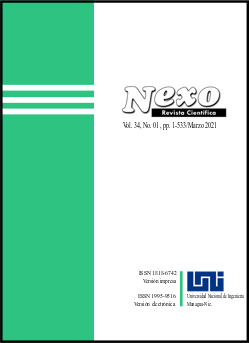Logical model of mobile object control
DOI:
https://doi.org/10.5377/nexo.v34i01.11327Keywords:
Information situation, Logical model, Soft control, Topological modelAbstract
This paper describes a logical model applied as a soft control tool to mobile objects. The model of the logical spatial situation without uncertainty, i.e., according to the law of excluded middle, is considered as the basis. Nonetheless, the motion rules are derived using an approach applied in constructible mathematics and logic. The approach consists in the finitude of variants of control and analyzing all potential traffic scenarios. The constructible object considered in this paper is the situation’s logical model. The constructible approach consists in considering the model of a typical railway station by the example of which the traffic is analyzed. The situation’s logical model is implemented as a condition for potential traffic. This model is described using mathematical logic with the help of logical variables and rules. The control system in this case makes use of permissible versions of logical designs. The control relies on the feasibility of traffic. The system of control rules is developed on the basis of the logical situation’s model and formed without uncertainty. The article provides an analysis of complementary kinds of traffic.
Downloads
2029
Downloads
Published
How to Cite
Issue
Section
License
The authors who publish in Nexo Scientific Journal agree to the following terms:
- Authors retain the copyright and grant the journal the right of the first publication under the license Creative Commons Attribution License, which allows others to share the work with a recognition of the authorship of the work and the initial publication in Nexo Scientific Journal.
- Authors may separately establish additional agreements for the non-exclusive distribution of the version of the work published in the journal (for example, in an institutional repository or a book), with the recognition of the initial publication in Nexo Scientific Journal.
- Authors are allowed and encouraged to disseminate their works electronically (for example, in institutional repositories or in their own website) before and during the submission process, as it can lead to productive exchanges, as well as earlier and greater citation of published works.










